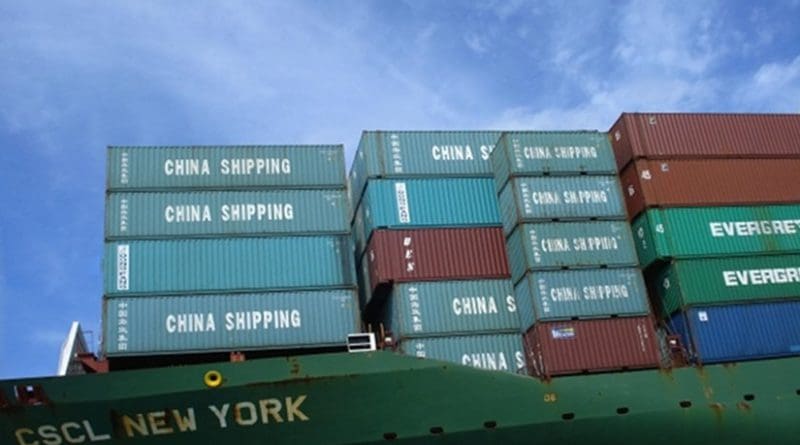Labor Dispute At Major US Cargo Port Ends
By VOA
Thousands of striking workers at the biggest cargo port complex in the United States are going back to work Wednesday after reaching a tentative deal with management.
The agreement to end the week-long walkout at the Los Angeles and Long Beach ports in California was announced late Tuesday by Los Angeles Mayor Antonio Villaraigosa. The two sides voted on the deal just as federal mediators arrived from Washington to help end the standoff.
Sal Chavez was one of about 800 clerical workers walked off the job last Tuesday, claiming that shipping lines wanted to outsource jobs overseas. “The jobs have been going left and right out of the country, and nobody’s doing anything about it,” he noted. “Somebody has to step forward and say, we need to keep these jobs in America, that’s where the jobs are here. They belong to our terminal, they belong here.”
But the group representing the shippers said they merely wanted the right to hire the people they really need.
The strike grew after 10,000 unionized dockworkers joined the clerical workers and refused to cross the picket lines to load and unload cargo. Ten of the twin ports’ 14 container terminals were eventually shut down, forcing shippers to transport their cargo to other ports in California and Mexico.
Chris Lytle, the executive director of the Port of Long Beach, spoke about the effect the strike was having on economic activity.
“All cargo coming into the port is stopped, not only on the land side but on the ocean side. You start to have ships at anchor. All of the directly impacted workers obviously aren’t working. But then it’s all the other ancillary businesses, the trucking, the warehousing, all the logistics,” Lytle stated. “So all of those workers aren’t working, and that ripples, all the way out to every place we touch.”
The Los Angeles and Long Beach ports account for nearly 40 percent of all imports shipped to the U.S., averaging $1 billion a day.
Kristen Monaco, an economics professor at California State University, says the twin ports could face real competition along the Pacific Coast once expansion on the Panama Canal ends in 2014. But Monaco says the Los Angeles and Long Beach ports will continue to attract steady business over time.
“It’s still an efficient, good first port of call for most of the goods coming in — keeping in mind that southern California has a huge market for consumption. It’s a very large city, it’s a very large region, a lot is consumed here,” Monaco said. “And a lot of the warehouses and distributions centers are centered here. We have great rail and truck access. So its still a very preferred port of call.”
Terms of the agreement between the clerical workers and management have not been released. The clerical workers are expected to ratify the new contract.

